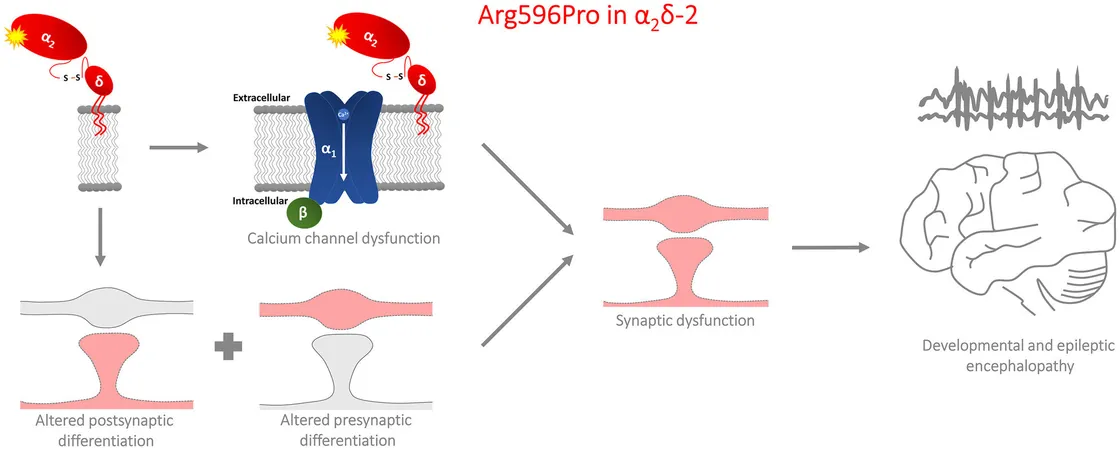
SHOCKING REVELATION: Exenatide Fails to Prevent Organ Injury During Heart Surgery!
2024-11-17
Author: Daniel
Introduction
In a groundbreaking study unveiled at the American Heart Association (AHA) Scientific Sessions 2024, researchers confirmed that intravenous exenatide, a glucagon-like peptide-1 (GLP-1) receptor agonist, showed no significant reduction in the risk of death, stroke, or organ failure during cardiac surgeries that required cardiopulmonary bypass. This outcome left many in the medical community surprised and questioning what this means for the future of patient care in cardiac procedures.
The GLORIOUS Trial
The GLORIOUS trial took a rigorous approach by assessing whether a 17.4μg infusion of exenatide could mitigate complications associated with cardiac surgeries, particularly those assisted by cardiopulmonary bypass. Conducted in Denmark, this randomized, double-blind, placebo-controlled trial enlisted around 1,400 adults scheduled for elective surgery, including coronary bypass grafts and aortic valve replacements, between February 2016 and December 2021. Participants, averaging 68 years of age, were closely monitored for nearly six years post-surgery.
Insights from the Study
Dr. Sebastian Wiberg, the anesthesiologist leading the study at The Heart Centre, Copenhagen University Hospital, highlighted the inadequacy of existing perioperative treatments for cardiac surgery patients. 'The evidence for perioperative treatment of patients undergoing cardiac surgery is limited,' he stated, emphasizing the urgent need for clinical trials aimed at reducing complications such as organ injury and clot formation.
Results of the Trial
While exenatide was originally introduced in 2005 as a treatment for type 2 diabetes, hopes that it could shield cardiac surgery patients from complications were dashed in this trial. The analysis found that around 14% of patients receiving exenatide succumbed during the follow-up period, slightly more than the 13% in the placebo group. Furthermore, 5.8% of those treated with exenatide experienced a stroke, compared to 4.8% in the placebo group.
Comparative Outcomes
A jaw-dropping finding was the similar rates of new heart failure cases between the two groups—9.8% for exenatide vs. 10% for placebo—along with kidney injury rates that were also comparable (4.8% vs. 5.3%).
Future Prospects
Despite these disappointing results, Dr. Wiberg urged not to dismiss all GLP-1 drugs. He pointed out that further research might be needed to explore the effects of other GLP-1 agonists, longer treatment durations, or different dosage levels. 'These findings illuminate critical gaps in our understanding of managing patients on bypass during surgery, showcasing an urgent requirement for more comprehensive studies to improve surgical outcomes,' he remarked.
Conclusion
This trial adds to the growing compendium of research indicating the need for improved clinical strategies in cardiac surgery. While exenatide did not rise to the occasion, it sets the stage for future explorations that could ultimately yield more effective interventions for those undergoing these high-risk procedures.
As the medical community processes these findings, one thing remains clear: the quest for optimal cardiac surgery outcomes is far from over!




 Brasil (PT)
Brasil (PT)
 Canada (EN)
Canada (EN)
 Chile (ES)
Chile (ES)
 España (ES)
España (ES)
 France (FR)
France (FR)
 Hong Kong (EN)
Hong Kong (EN)
 Italia (IT)
Italia (IT)
 日本 (JA)
日本 (JA)
 Magyarország (HU)
Magyarország (HU)
 Norge (NO)
Norge (NO)
 Polska (PL)
Polska (PL)
 Schweiz (DE)
Schweiz (DE)
 Singapore (EN)
Singapore (EN)
 Sverige (SV)
Sverige (SV)
 Suomi (FI)
Suomi (FI)
 Türkiye (TR)
Türkiye (TR)